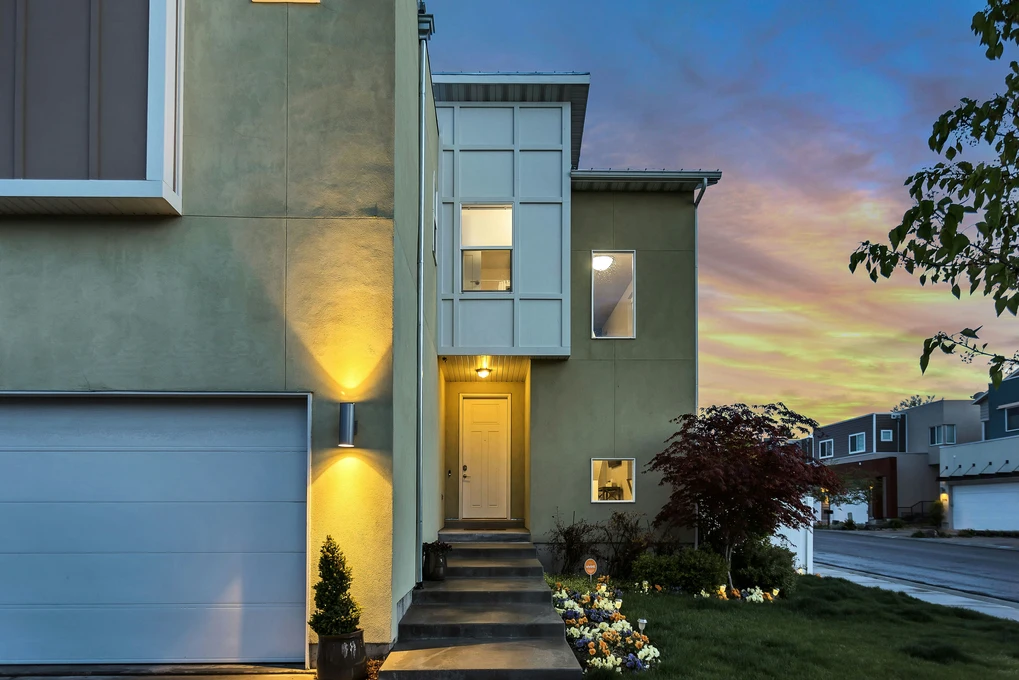Most homeowners want a safer home — but figuring out where the risks are, what needs improvement, and which steps to take can feel overwhelming. You might wonder: Is my door secure? Are my windows vulnerable? Should I upgrade my camera? Do I need sensors? What are the weak spots?
This is exactly why millions of Americans are turning to an AI home security risk evaluator. Instead of guessing, AI home security analyzes your home’s layout, entry points, lighting, routines, and vulnerabilities, then generates a personalized security checklist designed to protect your property and the people inside it.
Today’s AI security tools are fast, accurate, affordable, and beginner-friendly. They help average homeowners achieve professional-level assessment without hiring an expensive security consultant.
This guide explains how an AI home security risk evaluator works, why it’s trending across the U.S., who benefits most, and how you can start using AI to protect your home instantly.

What Is an AI Home Security Risk Evaluator & Why It’s Trending
What AI home security actually does
An AI home security risk evaluator uses artificial intelligence to assess your home’s safety by analyzing:
- Entry points (doors, windows, garage)
- Indoor & outdoor lighting
- Blind spots
- Locks & hardware strength
- Neighborhood crime data
- Camera placement
- Landscaping risks
- Daily activity patterns
- Package theft exposure
- Smart device vulnerabilities
It generates a personalized security plan including:
- High-risk areas
- Recommended improvements
- Priority-level alerts
- Step-by-step safety actions
- Smart gadget suggestions
- Seasonal risk changes
Why AI home security is trending today
Searches in the U.S. for “home security AI,” “AI home safety check,” and “AI protect home” surged this week because:
- Package theft rises during holiday season
- Shorter daylight hours increase nighttime risk
- More people work away from home again
- Smart cameras & locks are more affordable
- AI home evaluation tools have become mainstream
- Parents and seniors want faster protection
AI home protection has become one of America’s most searched smart-living topics this week — right in time for the holiday season and winter months.
Key Benefits of Using an AI Home Security Risk Evaluator
Personalized safety assessment
AI evaluates your home’s unique vulnerabilities — not generic advice.
Fast and automatic
No long checklists or manuals — AI analyzes everything for you.
Affordable alternative to home security audits
You get expert-level insights without high consultant fees.
Better decision-making
Know exactly what upgrades matter most.
Peace of mind
Your home feels safer, controlled, and protected.
Helps reduce break-ins
AI identifies risks that most homeowners overlook.
Ideal for homeowners and renters
Works for houses, apartments, townhomes, and condos.

How an AI Home Security Risk Evaluator Works
Step 1 — You upload photos or enter details
Simply add images of your home exterior, doors, windows, or layout.
Step 2 — AI analyzes vulnerabilities
It detects weak areas, poor lighting, outdated hardware, and hidden blind spots.
Step 3 — Neighborhood data evaluation
AI cross-checks crime trends, package theft reports, and seasonal risks.
Step 4 — Personalized risk score
You receive a clear score based on your home’s overall security.
Step 5 — AI generates a safety plan
Including:
- High-priority fixes
- Medium risks
- Low-impact suggestions
- Safety habits
- Smart device recommendations
Step 6 — Maintenance reminders
AI alerts you when to update locks, replace batteries, or adjust lighting.
Step 7 — Ongoing protection
Update photos anytime to re-evaluate your home.
Who an AI Home Security Risk Evaluator Is Perfect For
Families
Parents can secure doors, windows, and outdoor areas more easily.
Women living alone
AI helps identify risks and provides strong security habits.
Seniors
Clear, simple steps improve safety without complexity.
Renters
AI offers risk-free recommendations without requiring renovations.
Frequent travelers
Perfect for people who leave their home unoccupied often.
New homeowners
Understand your home’s vulnerabilities right away.
Smart home users
AI enhances your existing devices with tailored suggestions.
Real-World Use Cases
Protecting front doors
AI highlights weak locks, poor lighting, and visibility issues.
Reducing package theft
Placement suggestions for cameras, lights, and lockboxes.
Securing windows
AI identifies easy-to-access windows and recommends hardware.
Improving backyard safety
Detects hiding spots, weak fences, and lighting gaps.
Child safety
Helps secure cabinets, laundry rooms, and stairways.
Smart lock optimization
AI checks if your routines align with safe lock usage.
Nighttime safety improvements
AI analyzes shadows, blind areas, and lighting coverage.
Best Features to Look For in an AI Home Security Tool
Accurate image analysis
High-quality detection of shadows, blind spots, and weak hardware.
Personalized recommendations
AI should tailor suggestions to your home layout.
Seasonal updates
Winter, summer, holidays, and storms influence security.
Easy-to-follow checklists
Clear action steps, not overwhelming instructions.
Integration with smart devices
Support for cameras, lights, and sensors.
Neighborhood risk data
Helpful for planning and awareness.
Detailed risk scoring
Comprehensive but easy to understand.
How to Choose the Right AI Security Risk Evaluator
Look for strong privacy protection
Home images require the highest security.
Choose one with photo-based analysis
More accurate than text-only tools.
Ensure it supports your home type
Apartments and houses have different vulnerabilities.
Look for easy customization
You should be able to add rooms, doors, and outdoor areas.
Check device compatibility
Some tools integrate with camera brands or smart locks.
Common Mistakes to Avoid
Ignoring lighting
Poor lighting is the #1 cause of nighttime safety issues.
Forgetting about windows
Many homeowners secure doors but overlook windows.
Keeping bushes too high
Tall shrubs give intruders hiding spots.
Avoiding maintenance
Loose hinges, rusted locks, and weak screws reduce safety.
Not checking packages
Unattended boxes attract theft.
Using weak passwords
Smart home devices must be protected digitally, too.
Expert Tips for Better Home Security
Use motion-activated lights
They scare away intruders and brighten important areas.
Add door reinforcement plates
A simple upgrade that dramatically improves security.
Install wide-angle cameras
Covers more area with fewer devices.
Secure sliding doors
Use bars, sensors, or upgraded locks.
Use timers
Lights turning on automatically give the illusion of presence.

Reevaluate every season
Winter darkness and summer windows require different strategies.
An AI home security risk evaluator is one of the smartest tools you can use to protect your home today. Instead of trying to guess your home’s vulnerabilities, AI finds them instantly—and gives you clear, simple instructions on how to fix them.
Whether you live alone, with family, in a rental, or in a new home, AI helps you feel safer, more confident, and more in control of your environment. Smart security starts with smart awareness — and AI delivers both.
Thanks for reading this guide on Designs24hr. If you’ve tried any of these ideas—or have your own tips—share your experience in the comments. Designs24hr is updated daily, so visit anytime you want to learn something new about AI, smart living, and modern design.







